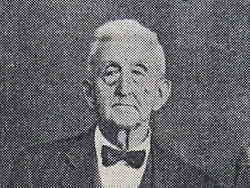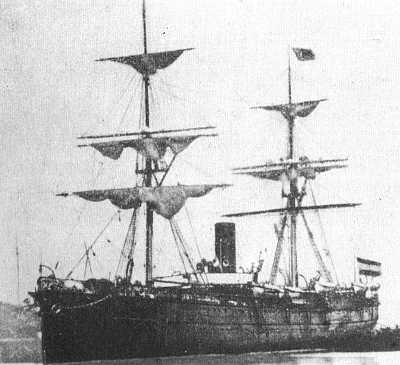Isaac I. Bargen was born in November, 1857, in one of the villages of the Mennonite Molotschna colony in South Russia. His father was Isaak Heinrich Bargen and his mother was Justina Loewen Neufeld. Upon his profession of faith in the Lord, Jesus Christ, Isaac was baptized at Margenau by Bernhard Peters in 1878. Within months of that event, Isaac emigrated to the United States, where he spent the rest of his 85+ years of life as a resident of Mountain Lake, Minnesota.
Isaac led an active life pursuing a variety of interests which endeared him to the Mountain Lake community. He served as the Mountain Lake postmaster for more than 30 years. He also was the secretary of the Mennonite Aid Plan. From 1886 to 1893 he was the principal of the Mountain Lake public school system. Another of his ventures was that of publishing, providing the Mountain Lake View along with a number of other periodicals for the reading public. Isaac’s accomplishments and contributions to society led to his name being listed in Who’s Who Among the Mennonites in 1943.

Records show that Isaac married Sara Hiebert on December 28, 1886, in Mountain Lake. Sara had emigrated to the United States from South Russia one year before Isaac arrived. They became the parents of ten children, all of whom were born in Mountain Lake.
Isaac Bargen is not part of the Odens-Toews clan lineage. So why introduce him in this venue? Because he emigrated to the United States on board the SS Strassburg, arriving in New York on July 2, 1878, according to the ship’s records. In other words, Isaac came to the United States on the same ship and on the same voyage in which a number of my ancestors also arrived (see More Cruising, August 8, 2020).

What is notable for our purposes is the fact that Isaac Bargen wrote a brief account of what it was like to make the permanent journey from South Russia to Mountain Lake, an account of which we have a record. His description helps us grasp what our ancestors experienced and endured as they sought the freedoms and opportunities which they hoped to gain in the United States.
Here is what Isaac penned:
Our precious Russian residence built of brick under a beautiful red pantile roof, the high shade trees, orchards, flower beds, fields—all were sold at a great sacrifice. The time arrived for a public auction to dispose of the personal property. Many objects which had become very dear to us went under the hammer. We had, for instance, a large, heavy Bible, with thick leather covers and silver clasps. It was printed on strong eggshell paper. The text had numerous half-page illustrations, and the first letter of every chapter was a large red wood-engraving. That Bible was over 200 years old. We children had studied those pictures as long as we could remember. It sold to an indifferent bidder for 20 kopeks (a kopek is worth less than one cent).
Preparations had to be made for the coming journey. Sacks full of biscuits (zwieback) were baked and toasted. Big hams were boiled or wrapped into a sheet of dough and baked in a hot oven. On the entire trip, we subsisted on the provisions which we carried with us.
The chartered train that took us to Bremen consisted of freight cars with boards fastened along the inside walls for seats. A ship awaited us in the Bremen harbor. It was a slow freighter, chartered for transportation of our group. It had no cabins. We were marched to the steerage, where two rows of berths, one above the other, had been built of rough lumber along the side walls. A gigantic table stood in the middle of the room, solidly fastened to the floor.
On July 3, after traveling for six weeks, we finally heard the shout, “Land.” What a thrill! Everyone screamed with joy. Soon we were in a new world—America.
The next day we saw large crowds of people. Sharp reports and explosions followed each other in a quick succession. Confusion was everywhere. Our fathers wailed, “What have we done? We left Russia with our families to escape compulsory military service there, and we arrive here only to find this country actively engaged in war!” But it was America, observing its Fourth of July celebration.
From New York we traveled by train to Mt. Lake. This time the train ride was very different from the one we had started our journey on.